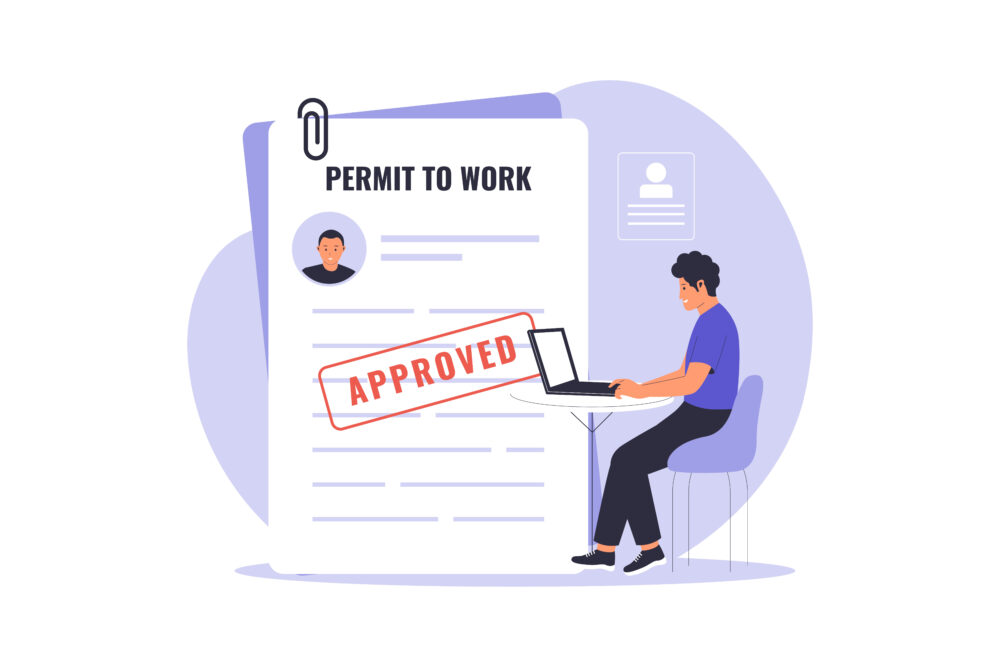In the course of business operations—particularly during peak production periods—mobilizing employees to work overtime is almost inevitable. However, many businesses, especially small and medium-sized enterprises, still lack a proper understanding or fail to correctly implement legal provisions on overtime. This can lead to significant legal risks, ranging from employee complaints to administrative sanctions upon inspection. Therefore, the following article aims to outline key points that enterprises should take into consideration when assigning employees to work overtime.

1. Definition of Overtime
According to Clause 1, Article 107 of the 2019 Labor Code, overtime work refers to the period of time worked beyond the normal working hours prescribed by law, collective labor agreements, or internal labor regulations.
2. Legal Limits on Overtime
The total overtime must not exceed 50% of normal working hours in 01 day if the overtime occurs within a normal working day.
In case the employer has regulations on weekly normal working hours, the normal working hours plus overtime must not exceed 12 hours in 01 day.
In case of part-time employment, the normal working hours plus overtime hours must not exceed 12 hours in 01 day. A part-time employee is an employee who works for less than the usual daily, weekly or monthly working hours as prescribed by labor laws, the collective bargaining agreement internal labor regulations

The total overtime hours must not exceed 12 hours a day during public holidays and weekly days off.
However, employers may still be permitted to organize overtime work in excess of 200 hours but not exceeding 300 hours per year in certain exceptional cases. Specifically, this applies to urgent, non-deferrable tasks arising from objective circumstances directly related to public service activities within State agencies or public units, except for those cases prohibited under Article 108 of the 2019 Labor Code.
In addition, this extended overtime threshold may also be applicable to enterprises engaged in the provision of essential public services, including medical examination and treatment, education, vocational training, and to enterprises directly involved in production or business activities where the standard working time does not exceed 44 hours per week.
It is important to note that in the aforementioned cases, the employer is required to notify, in writing, the provincial-level Department of Labor, War Invalids and Social Affairs (DOLISA) prior to organizing such extended overtime. Moreover, in instances where employees are required to work more than 200 hours but not exceeding 300 hours per year, the employer must also notify the Department of Home Affairs at the location(s) where such overtime is implemented. If the employer’s headquarters is located in a different province or centrally-run city from where the overtime takes place, the Department of Home Affairs at the head office location must also be notified. This notification must be submitted no later than 15 days from the date the extended overtime is first implemented.
Accordingly, for the year 2025, the maximum allowable overtime for employees shall not exceed 40 hours per month and 200 hours per year, except for specific cases where a maximum of 300 hours per year is permitted as outlined above.
3. Administrative Penalties for Excessive Overtime
If an employer organizes overtime work in excess of the statutory limits, such employer may be subject to administrative sanctions as provided under Clause 4, Article 18 of Decree No. 12/2022/ND-CP dated January 17, 2022, on penalties for administrative violations in the field of labor, social insurance, and overseas manpower supply under labor contracts.
Specifically, monetary fines shall be imposed on employers who fail to comply with regulations concerning employees’ rest periods during working hours or shift transitions, or who mobilize employees to perform overtime work that exceeds the maximum thresholds stipulated by law, as follows:
- From VND 5 million to VND 10 million for violations involving 1 to 10 employees.
- From VND 10 million to VND 20 million for violations involving 11 to 50 employees.
- From VND 20 million to VND 40 million for violations involving 51 to 100 employees.
- From VND 40 million to VND 60 million for violations involving 101 to 300 employees.
- From VND 60 million to VND 75 million for violations involving 301 or more employees.
We hope the information above has helped you better understand the regulations on overtime hours for employees. If you have any further questions or need legal advice, please contact Apolat Legal through:
- Phone: 0911 357 447
- Email: info@apolatlegal.com
- Website: apolatlegal.com
Related posts
- Guidance on implementing regulations on increasing overtime
- Is Offsetting The Employee’s Overtime Hours By Compensatory Leave Legal?
Disclaimers:
This article is for general information purposes only and is not intended to provide any legal advice for any particular case. The legal provisions referenced in the content are in effect at the time of publication but may have expired at the time you read the content. We therefore advise that you always consult a professional consultant before applying any content.
For issues related to the content or intellectual property rights of the article, please email cs@apolatlegal.vn.
Apolat Legal is a law firm in Vietnam with experience and capacity to provide consulting services related to Employment and contact our team of lawyers in Vietnam via email info@apolatlegal.com.





































